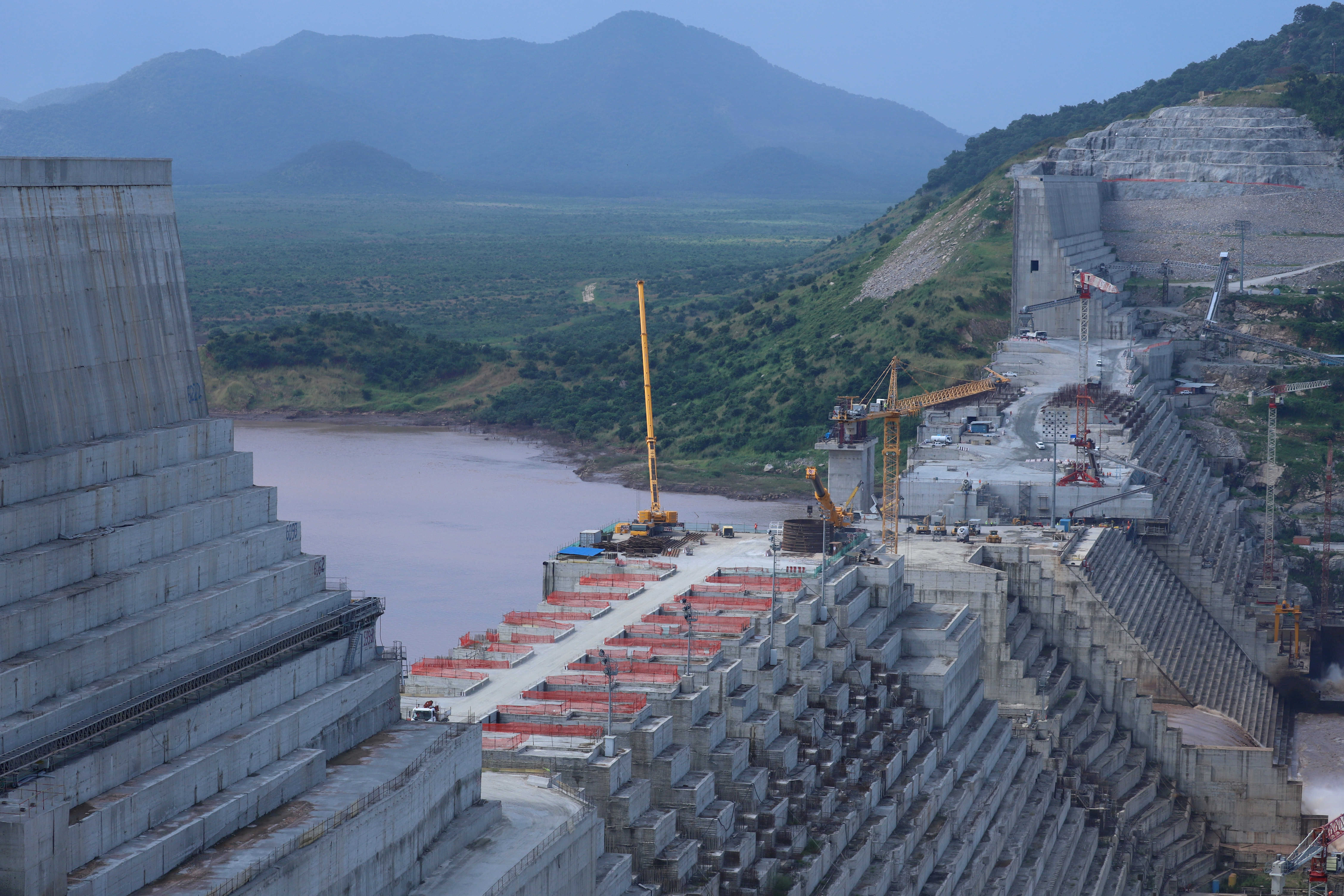Egypt, Ethiopia remain deadlocked on the Nile dam
The latest talks hosted by the U.S. Treasury produced some progress but failed to achieve a comprehensive agreement on the filling and operation of the Grand Ethiopian Renaissance Dam (GERD).
Egypt and Ethiopia are still deadlocked over the dam, despite urging from U.S. President Donald Trump that parties reach a “mutually beneficial agreement.”
The parties had agreed in November to a deadline of January 15, 2020, for reaching an accord on the dam. Egypt, Ethiopia and Sudan are scheduled to reconvene in Washington on January 28-29 to finalize an agreement.
A joint statement released by U.S. Treasury noted the “progress achieved” and the joint “commitment to reach a comprehensive, cooperative, adaptive, sustainable and mutually beneficial agreement on the filling and operation of the Grand Ethiopian Renaissance Dam.”
 FILE PHOTO: Ethiopia's Grand Renaissance Dam is seen as it undergoes construction work on the river Nile in Guba Woreda, Benishangul Gumuz Region, Ethiopia September 26, 2019. REUTERS/Tiksa Negeri/File Photo - RC155C50EC00
FILE PHOTO: Ethiopia's Grand Renaissance Dam is seen as it undergoes construction work on the river Nile in Guba Woreda, Benishangul Gumuz Region, Ethiopia September 26, 2019. REUTERS/Tiksa Negeri/File Photo - RC155C50EC00
Ethiopia and Egypt have been negotiating for years, but one sticking point remains the rate at which Ethiopia will draw water out of the Nile to fill the dam's reservoir. Cairo fears Ethiopia's plans to rapidly fill the reservoir could threaten Egypt's source of fresh water.
Reservoir filling in stages
The parties have agreed that the filling of the dam will be “executed in stages” during the wet season, in a manner that will take into account “the potential impact of the filling on downstream reservoirs,” according to the statement.
The parties have agreed to an initial filling stage of the GERD that will provide for the rapid achievement of a level of 595 meters above sea level and the early generation of electricity, while providing appropriate mitigation measures for Egypt and Sudan in case of severe droughts during this stage.
The parties have not appeared to agree on how these provisions will be implemented. However, observers note that there is political will to continue talks.
“This is progress,” said Aaron Salzberg, director of the Water Institute at the University of North Carolina and former director of the State Department agency that deals with international transboundary water issues.
“The countries are staying at the table and a vision for the cooperative and adaptive management of GERD — based on hydrology and downstream impacts — is coming together,” Salzberg added.
Prior to negotiations this week, a group of Egyptian academics and civil society circulated a petition calling for the United Nations, African Union and Pan African Parliament to exert pressure on Ethiopia and “avert potential conflict in the region” over the dam.
Ethiopia continues to insist that it is not going beyond a tripartite negotiation on this issue, with U.S. and the World Bank participating only as observers during the three Washington meetings.
On Monday, Ethiopia requested that South African President Cyril Ramaphosa help resolve the long-running dispute.
Still, the joint statement appears to represent a lowering in tensions. In October, Ethiopian Prime Minister Abiy Ahmed warned that if the need arose to go to war over the dam, his country could ready millions of people.
White House meeting
On Tuesday, Trump met with the foreign and water resources ministers of Egypt, Ethiopia and Sudan at the White House to discuss progress on dam talks and reaffirm “United States support for a cooperative, sustainable and mutually beneficial agreement among the parties.”













